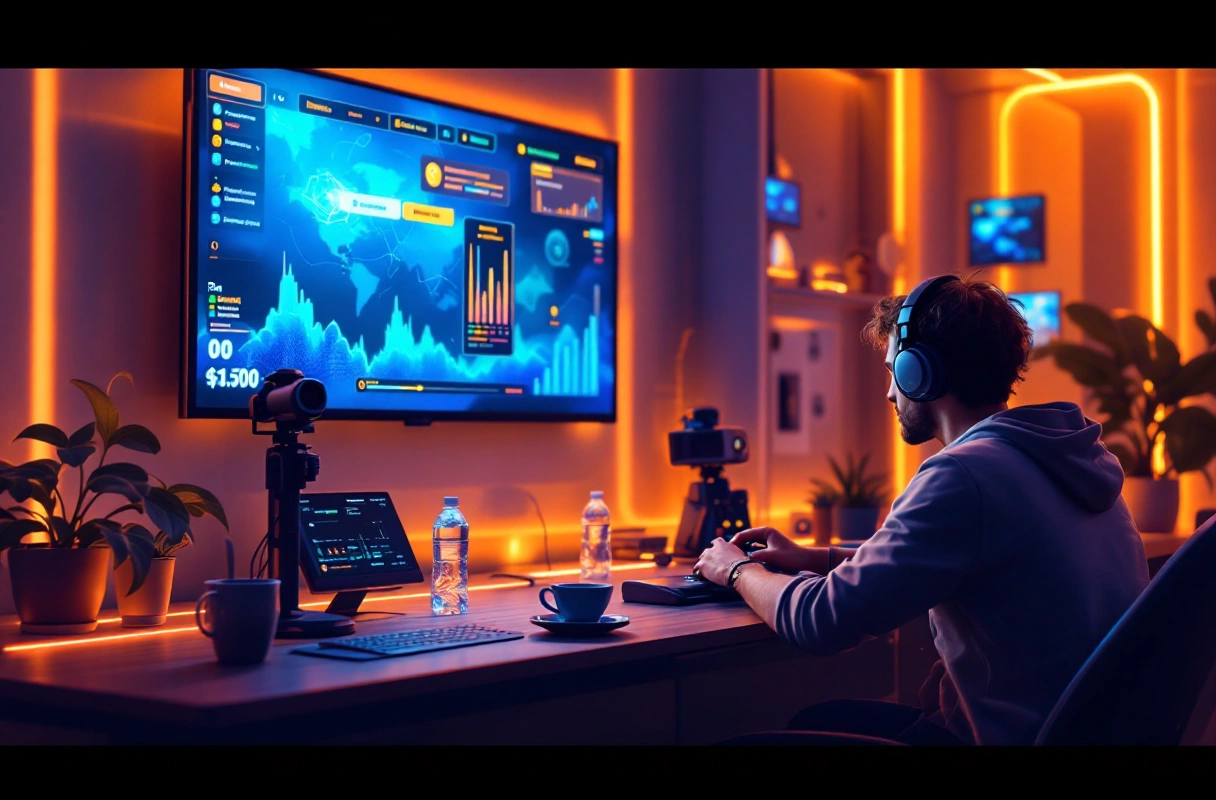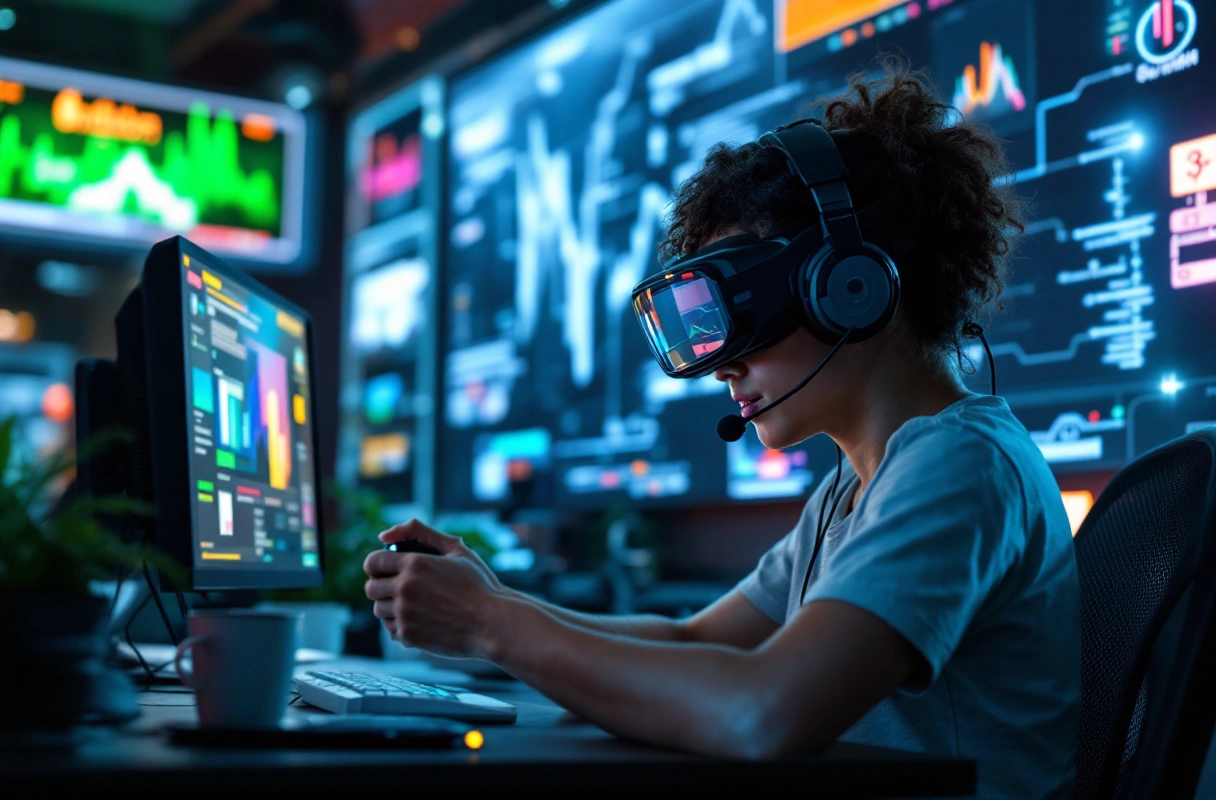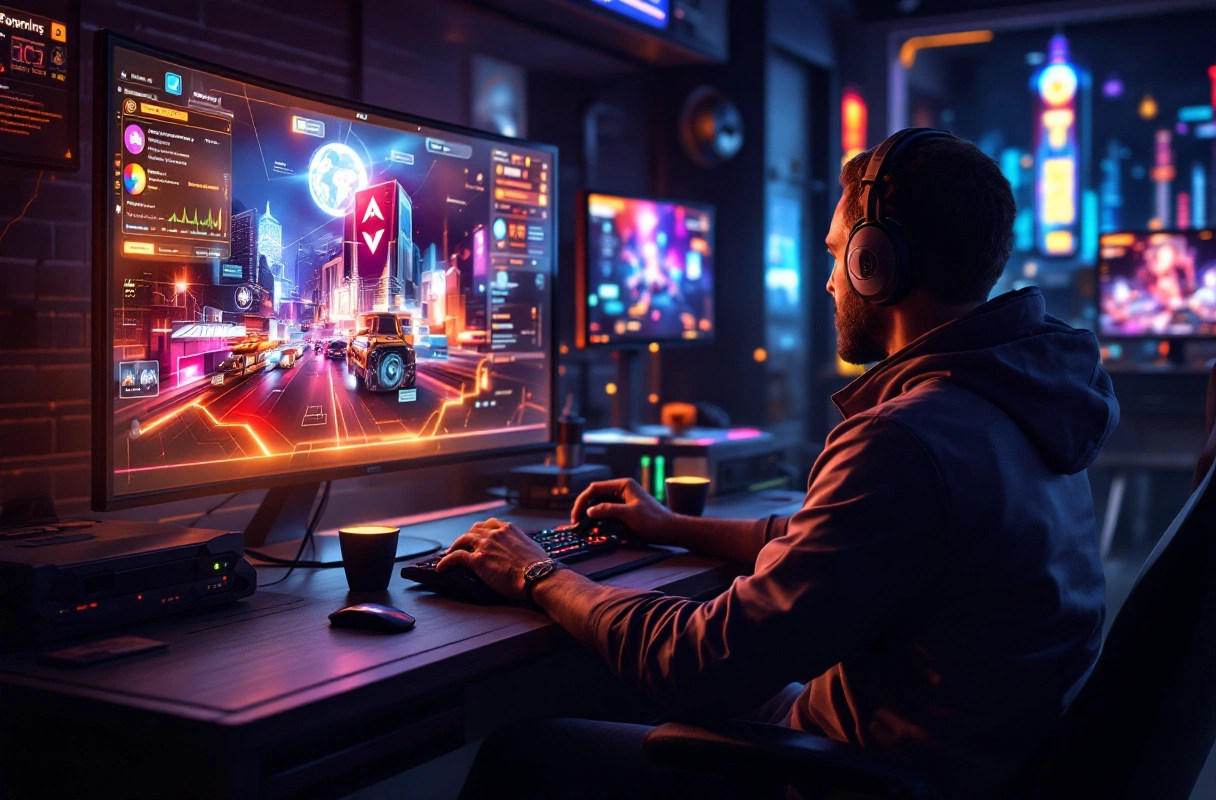The gaming industry has witnessed significant transformations over the past few years, with blockchain technology emerging as a pivotal force reshaping how games are developed, played, and monetized. The integration of blockchain into gaming is not merely a trend; it represents a fundamental shift toward decentralized platforms, where players have more control over their digital assets.
Web3 gaming and entertainment leverage the decentralized nature of blockchain to provide players with ownership of in-game assets, create virtual economies, and facilitate novel gameplay experiences. This article will delve into the various aspects of blockchain gaming, including the rise of NFT gaming, the concept of play-to-earn, and the implications for digital collectibles and metaverse gaming.
The Emergence of Blockchain Gaming

What is Blockchain Gaming?
Blockchain gaming refers to games that utilize blockchain technology to enhance gameplay experiences and provide players with true ownership of their in-game assets. Unlike traditional gaming models, where players purchase items without any real ownership, blockchain-based games allow users to buy, sell, and trade assets in a secure and transparent manner. This shift is significant as it challenges the conventional norms of game monetization and player engagement.
- Players can own unique assets, such as skins, weapons, and characters, as non-fungible tokens (NFTs).
- Blockchain technology ensures transparency and security, making it easier to verify ownership and provenance.
- Developers can create decentralized applications (dApps) that offer innovative gameplay mechanics, such as token rewards and player governance.
The Role of NFTs in Gaming
NFTs have become a defining feature of blockchain gaming, allowing players to own unique digital assets that can be traded or sold. These tokens represent ownership of specific items within a game and are stored on the blockchain, ensuring their scarcity and authenticity.
- Unique Items: Each NFT is distinct, enabling the creation of one-of-a-kind in-game items that can be bought and sold in secondary markets.
- Interoperability: NFTs can be used across different games, allowing players to transfer their assets between various platforms.
- Value Appreciation: As demand for specific NFTs grows, their value can increase, providing players with investment opportunities.
The integration of NFTs into gaming has led to a flourishing marketplace for digital collectibles, where players can engage in trading and investing in their favorite items.
Decentralized Entertainment and the Play-to-Earn Model

Understanding Play-to-Earn
Play-to-earn (P2E) is a revolutionary concept that allows players to earn real-world value through their gaming activities. In traditional gaming, players invest time and money without any financial return. In contrast, P2E games reward players with cryptocurrency or NFTs, enabling them to monetize their gameplay.
- Financial Incentives: Players can earn tokens for completing tasks, winning battles, or participating in events.
- Community Engagement: P2E models foster strong communities, as players collaborate to achieve common goals and earn rewards.
- Economic Empowerment: Players in developing regions can leverage P2E games as a source of income, creating opportunities for financial independence.
This model has gained traction, particularly in regions with limited economic opportunities, as it provides a pathway for players to earn while enjoying their favorite games.
Decentralized Gaming Platforms
Decentralized gaming platforms are built on blockchain technology, allowing for player ownership and governance. These platforms enable developers to create games that are not controlled by a single entity, ensuring a fairer distribution of profits and decision-making power.
- Community Governance: Players can participate in the decision-making process regarding game updates, rules, and economic structures.
- Fair Revenue Distribution: Developers can establish transparent revenue-sharing models, ensuring that players receive a fair portion of the profits generated by the game.
- Innovation: Decentralized platforms encourage creativity and experimentation, as developers are free from traditional publishing constraints.
These platforms are paving the way for a new era of gaming, where players have more agency and influence over their gaming experiences.
The Metaverse and Virtual Economies

The Concept of the Metaverse
The metaverse represents a collective virtual space where players can interact, socialize, and engage in various activities within a digital environment. Blockchain technology plays a crucial role in enabling the metaverse by providing the infrastructure for ownership, identity, and economic transactions.
- Persistent Worlds: Blockchain allows for the creation of persistent virtual worlds that exist independently of any single game.
- Cross-Platform Interactions: Players can seamlessly transition between different games and experiences within the metaverse, utilizing their owned assets across platforms.
- Social Experiences: The metaverse fosters social interactions, enabling players to connect and collaborate in ways that traditional gaming cannot facilitate.
As the concept of the metaverse continues to evolve, it will undoubtedly shape the future of gaming and entertainment.
Building Virtual Economies
Blockchain technology enables the creation of virtual economies within games and the metaverse. These economies are characterized by their unique currencies, marketplaces, and trade systems, allowing players to engage in economic activities similar to those in the real world.
- Cryptocurrency Integration: Many blockchain games utilize their own cryptocurrencies, which can be earned and spent within the game.
- Marketplaces: Players can trade assets, creating a vibrant marketplace for buying and selling digital items.
- Economic Models: Developers can implement various economic models, such as scarcity, inflation, and deflation, to create dynamic in-game economies.
These virtual economies not only enhance gameplay experiences but also provide players with real economic opportunities.
Key Trends Shaping Blockchain Gaming
As we move through 2025, several trends are emerging that will influence the future of blockchain gaming and entertainment. Understanding these trends is essential for players, developers, and investors alike.
- Increased Adoption of NFTs: The popularity of NFTs will continue to rise, with more games integrating unique digital assets into their gameplay mechanics.
- Expansion of P2E Models: More games will adopt play-to-earn mechanics, providing players with opportunities to earn real-world rewards.
- Enhanced Interoperability: Developers will focus on creating assets that can be used across multiple games, fostering a more interconnected gaming experience.
- Growth of Decentralized Platforms: Decentralized gaming platforms will gain traction, offering players more control and ownership over their gaming experiences.
- Emphasis on Community Engagement: Games will increasingly prioritize community involvement in decision-making and development processes.
These trends indicate a shift towards a more player-centric approach to gaming, where ownership, engagement, and economic opportunities are paramount.
Common Misconceptions in Blockchain Gaming
Despite the growing interest in blockchain gaming, several misconceptions persist. Addressing these misconceptions can help clarify the benefits and potential of this technology.
- Misconception: Blockchain gaming is only for cryptocurrency investors.
- Reality: While crypto investors may be interested, blockchain gaming appeals to a broader audience, including casual gamers who enjoy unique gameplay experiences.
- Misconception: NFTs are just a passing fad.
- Reality: NFTs represent a fundamental shift in how digital ownership is perceived, with significant implications for various industries, including gaming.
- Misconception: Blockchain games are too complex for average players.
- Reality: Many blockchain games are designed with user-friendly interfaces and tutorials to make them accessible to all players.
Addressing these misconceptions can help foster greater acceptance and understanding of blockchain technology within the gaming community.
The Future of Gaming with Blockchain
Innovations on the Horizon
As blockchain technology continues to evolve, the future of gaming holds exciting possibilities. Developers are exploring innovative ways to integrate blockchain into gaming experiences, creating new opportunities for players and investors.
- AI and Blockchain: The integration of artificial intelligence with blockchain can enhance gameplay, providing personalized experiences and dynamic content generation.
- Virtual Reality and Augmented Reality: Combining blockchain with VR and AR technologies can lead to immersive gaming experiences that blur the lines between the physical and digital worlds.
- Enhanced Security Features: As the gaming industry becomes increasingly digital, blockchain can provide robust security measures to protect players' assets and identities.
These innovations will shape the gaming landscape, driving further adoption of blockchain technology and creating new avenues for engagement and monetization.
The Role of Edge of Show in Blockchain Gaming
Blockchain is reshaping the gaming industry, from NFT-driven ownership to play-to-earn economies that give players a stake in the worlds they love. These innovations are creating new opportunities for gamers, developers, and investors to engage with interactive entertainment in ways that were not possible before.
At Edge of Show, we connect enthusiasts, creators, and investors with the insights and resources they need to navigate this shift. Our mission is to help you understand the mechanics of Web3 gaming and uncover the strategies that can position you at the forefront of this transformation.
Tune in to the Edge of Show podcast to dive deeper into the future of blockchain gaming—and discover how you can be part of the movement driving it forward.


.jpg)

.jpg)
.webp)
.webp)
.webp)


.svg)









